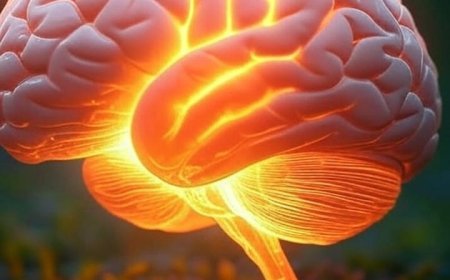Navigating Executive Functioning Struggles in Children with ADHD
Learn how ADHD affects executive functioning in kids. Discover signs vs. misbehavior & fun ways to help. Read parenting tips now!

For many children with Attention-Deficit/Hyperactivity Disorder (ADHD), life can feel like a constant battle against an invisible force. Beyond the hallmark symptoms of inattention, impulsivity, and hyperactivity, executive functioning (EF) struggles often lurk beneath the surface, shaping how a child navigates daily tasks. These challenges—ranging from difficulty organizing homework to managing emotions—can be particularly pronounced in childhood, leaving parents wondering how to help without frustration overtaking the process. This article explores what EF struggles look like in children with ADHD, how parents can differentiate them from misbehavior, and offers gentle, fun ways to build these skills without resorting to punishment.
What Are Executive Functioning Struggles in ADHD?
Executive functioning refers to a set of cognitive skills managed by the prefrontal cortex, including planning, organizing, working memory, impulse control, and emotional regulation. For children with ADHD, these skills often develop more slowly, sometimes lagging by 30% compared to peers, making routine tasks feel overwhelming. Unlike the energetic chaos of hyperactivity, EF struggles are quieter but equally disruptive, manifesting as forgotten assignments, difficulty transitioning between activities, or emotional outbursts that seem disproportionate to the situation.
In childhood, these struggles might appear as a child struggling to start a project despite understanding it, losing track of a multi-step chore, or becoming easily frustrated when plans change. These aren’t signs of laziness or defiance but rather a brain wiring that needs support to catch up.
Spotting the Difference: EF Struggles vs. Misbehavior
Parents often face the challenge of distinguishing between EF-related difficulties and intentional misbehavior. A child with EF struggles might forget to bring home their backpack not out of rebellion but because their working memory failed to prioritize it. Conversely, a child misbehaving might refuse a task out of defiance or to test boundaries.
Key differences include:
-
Consistency: EF issues are consistent across contexts (e.g., school and home), while misbehavior might be selective, occurring only with certain people or situations.
-
Emotional Response: EF struggles often lead to frustration or tears when a child can’t meet expectations, whereas misbehavior might involve a lack of remorse or a deliberate push against rules.
-
Effort: Children with EF challenges typically want to succeed but lack the tools, while misbehaving children may show less interest in the outcome.
Observation is crucial. If a child’s “misbehavior” aligns with known EF deficits—like poor time management or impulsivity—and they express distress rather than indifference, it’s likely an ADHD-related struggle. Open communication with teachers and tracking patterns can clarify the root cause, ensuring parents respond with support rather than discipline.
Gentle Ways to Help a Child Navigate EF Struggles
Supporting a child with EF challenges requires patience and a collaborative approach. The goal is to build skills without adding pressure. Here are some strategies:
-
Create Visual Cues: Use charts or checklists with pictures for younger kids to break tasks into manageable steps. For example, a morning routine chart with images (brush teeth, get dressed) helps them visualize the process.
-
Model and Practice Together: Sit with your child to plan a small task, like packing a school bag, narrating your thought process. This models planning and reinforces working memory without feeling like a lecture.
-
Celebrate Progress: Acknowledge effort, not just completion. A simple “I love how you remembered your folder today!” boosts confidence and motivation.
Fun Ways to Learn Executive Functioning Skills
Turning skill-building into play can make the process enjoyable and less punitive. Here are some ideas:
-
Board Games Like “Simon Says” or “Memory”: These games enhance working memory and impulse control. “Simon Says” requires listening and inhibition, while “Memory” boosts recall—all disguised as family fun.
-
Cooking Together: Making a simple recipe (e.g., cookies) involves planning (gathering ingredients), sequencing (following steps), and flexibility (adjusting if something spills). Turn it into a game by timing each step.
-
Treasure Hunts: Create a scavenger hunt with clues that require organizing thoughts and following directions. Add a playful twist, like a small prize, to encourage engagement and problem-solving.
These activities leverage a child’s natural curiosity, fostering EF skills through positive experiences rather than drills.
Supporting Research
The connection between EF struggles and ADHD, along with effective interventions, is backed by peer-reviewed studies:
-
Executive Functioning Support for Kids with ADHD, Journal of Attention Disorders, Dryer, J., et al.
-
The Effect of Physical Activity Interventions on Executive Functions in Children with ADHD: A Systematic Review and Meta-Analysis, Journal of Science and Medicine in Sport, Welsch, L., et al.
-
Improving Executive Functioning in Children with ADHD: What Parents and Caregivers Can Do, Pediatrics, Glanzman, M., and Nissley-Tsiopinis, M.
A Path Forward
EF struggles in children with ADHD are a real hurdle, but they’re not insurmountable. By recognizing these challenges as part of the condition rather than misbehavior, parents can offer gentle guidance. Through fun, collaborative activities and informed support, children can develop these skills at their own pace, paving the way for a more confident future.
What's Your Reaction?
 Like
0
Like
0
 Dislike
0
Dislike
0
 Love
0
Love
0
 Funny
0
Funny
0
 Angry
0
Angry
0
 Sad
0
Sad
0
 Wow
0
Wow
0










































